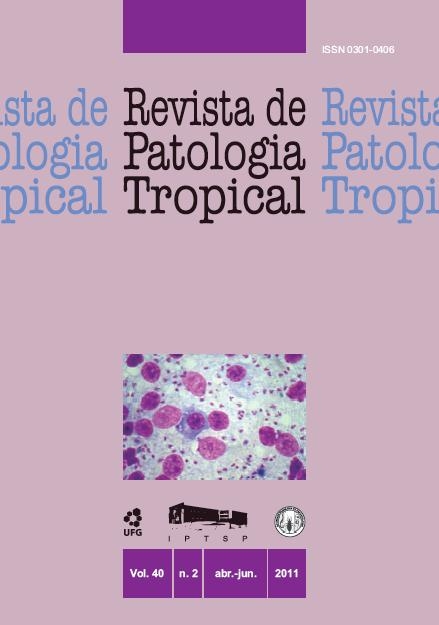Prevalence of positive VDRL in donors of the blood center in Cruz Alta municipality, Brazil, from 2003 to 2009
DOI:
https://doi.org/10.5216/rpt.v40i2.14943Keywords:
Syphilis, Blood donors, Serology.Abstract
Syphilis is caused by the bacterium Treponema pallidum and clinically dividedinto primary, secondary and tertiary. The main ways of transmission are by sexual
and congenital route, and also through blood transfusions. Serology for syphilis
in blood donors has been performed since 1938 and the aim of this study was to
check the prevalence of positive VDRL (Veneral Disease Research Laboratory) in
donors of the Regional Blood Center in Cruz Alta, Rio Grande do Sul State, Brazil,
from August 2003 to July 2009. We analyzed 20,780 donations and considered, for
this study, those which had either positive or inconclusive serology for the VDRL
test. The prevalence was 0.3% and 0.13%, for positive and inconclusive serology,
respectively. In relation to the gender of the donors with a positive or inconclusive
VDRL, 58.3% were male. Considering the age, donors between 31 and 40 years-old
had the highest proportion of positive cases. The VDRL reagent prevalence found in
this survey was considered low, and that it has been decreasing in the last few years.
The results from this study may be used for the development of measures to prevent
and control the syphilis prevalence in this region.
Downloads
Downloads
Published
How to Cite
Issue
Section
License
The manuscript submission must be accompanied by a letter signed by all authors stating the full name and email address, confirming that the material has not been published or is under consideration for publication elsewhere, and agreeing to transfer copyright in all media and formats for Journal of Tropical Pathology. The authors will not be paid for published articles. They are solely responsible for the content of those articles, even if the Editor holds the right to adjust them to the norms of the journal.
The reviewers will not be paid for the peer review process.

